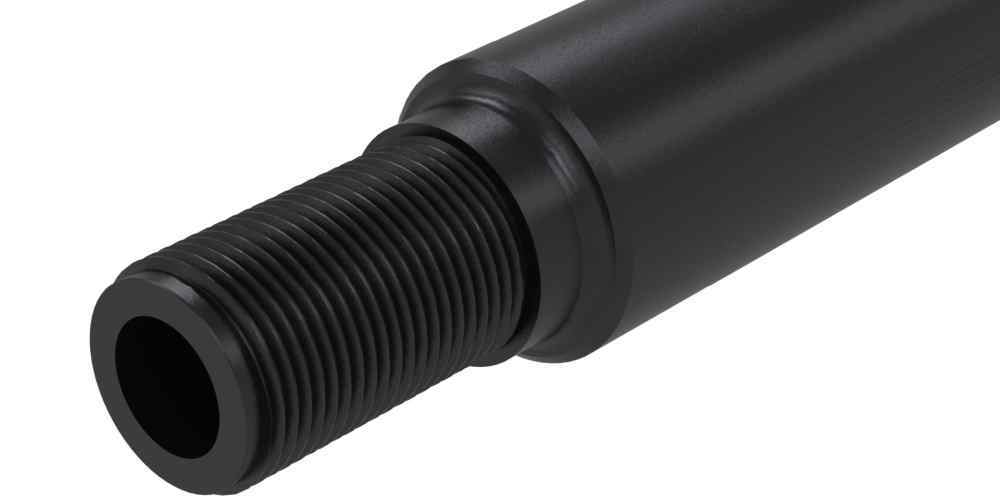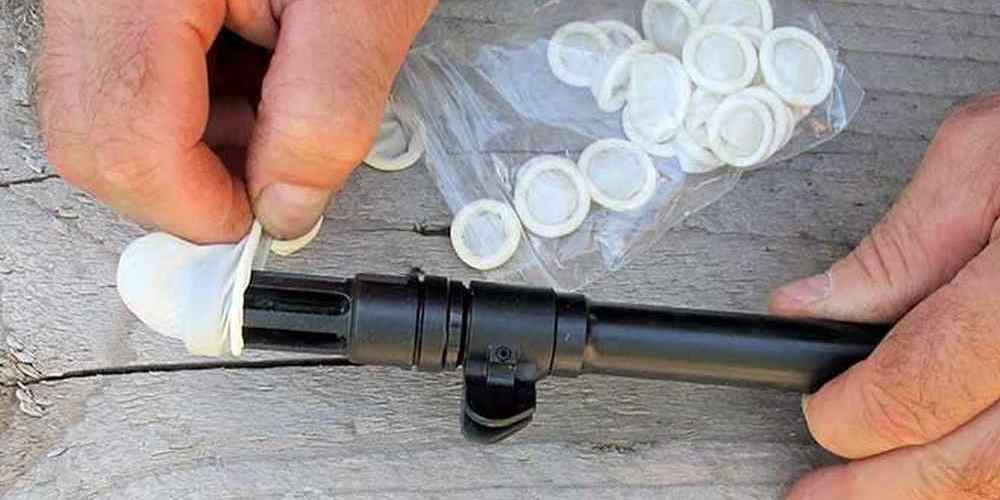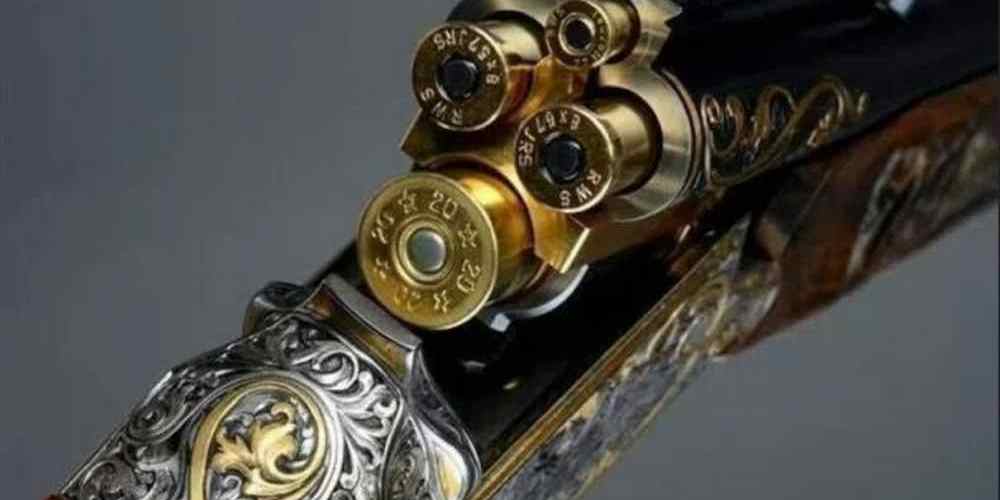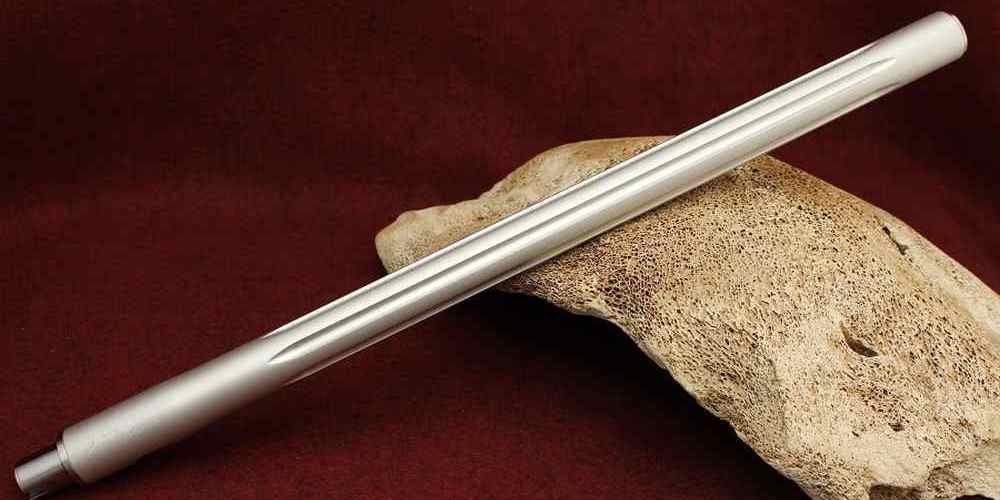“Barrel diameter: the key to precision and stability in every shot.”
Importance of Barrel Diameter in Rifle Stability
When it comes to rifle stability, there are many factors to consider, one of which is the barrel diameter. The diameter of a rifle barrel can have a significant impact on the stability and accuracy of the weapon. In this article, we will explore the importance of barrel diameter in rifle stability and how it can affect your shooting experience.
The diameter of a rifle barrel refers to the width of the bore, or the inside of the barrel where the bullet travels. A larger diameter barrel will generally provide more stability to the rifle, as it has more material to resist movement and vibration. This can result in improved accuracy and consistency in your shots.
On the other hand, a smaller diameter barrel may be lighter and easier to handle, but it may not provide the same level of stability as a larger diameter barrel. This can lead to increased recoil and decreased accuracy, especially when shooting at longer distances.
One of the main reasons why barrel diameter is important for rifle stability is its effect on barrel harmonics. Barrel harmonics refer to the vibrations that occur in the barrel when a shot is fired. These vibrations can affect the trajectory of the bullet and ultimately the accuracy of the shot.
A larger diameter barrel will have a lower frequency of vibrations, which can help to reduce the effects of barrel harmonics. This can result in more consistent and accurate shots, especially when shooting at longer distances or in challenging conditions.
In addition to barrel harmonics, the diameter of the barrel can also affect the weight distribution of the rifle. A larger diameter barrel will add more weight to the front of the rifle, which can help to balance the weapon and reduce muzzle rise during recoil. This can make the rifle easier to control and more comfortable to shoot.
Overall, the diameter of the barrel plays a crucial role in rifle stability and accuracy. By choosing the right barrel diameter for your needs, you can improve your shooting experience and achieve better results on the range or in the field.
In conclusion, the diameter of the barrel is an important factor to consider when it comes to rifle stability. A larger diameter barrel can provide more stability, reduce barrel harmonics, and improve accuracy, while a smaller diameter barrel may be lighter and easier to handle but may sacrifice stability and accuracy. By understanding the role of barrel diameter in rifle stability, you can make informed decisions when choosing a rifle for your shooting needs.
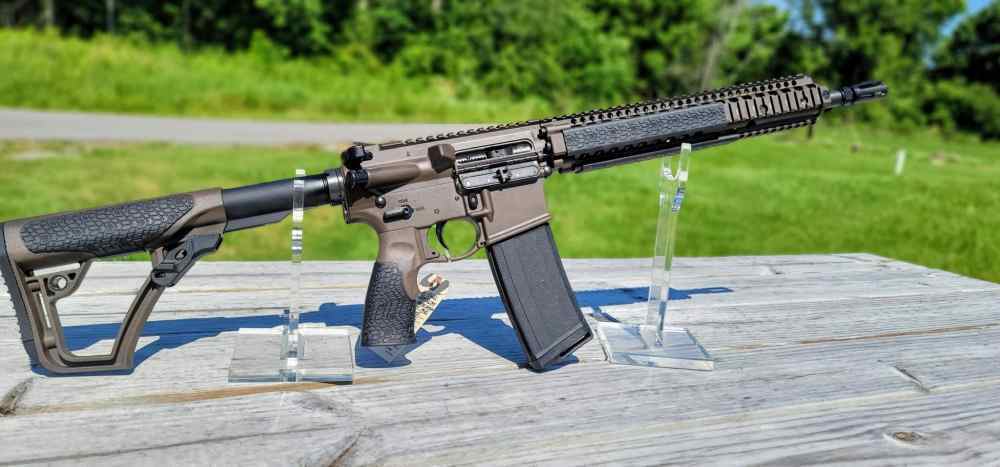
Factors Affecting Rifle Stability
When it comes to rifle stability, there are many factors that come into play. One of the most important factors to consider is the barrel diameter of the rifle. The barrel diameter can have a significant impact on the stability and accuracy of a rifle. In this article, we will explore the role of barrel diameter in rifle stability and how it can affect your shooting experience.
Barrel diameter refers to the width of the barrel of a rifle. The diameter of the barrel can vary depending on the type of rifle and its intended use. In general, rifles with larger barrel diameters tend to be more stable and accurate than rifles with smaller barrel diameters. This is because a larger barrel diameter provides more surface area for the bullet to make contact with, which can help to stabilize the bullet as it travels down the barrel.
One of the main ways in which barrel diameter affects rifle stability is through the phenomenon known as barrel harmonics. Barrel harmonics refers to the vibrations that occur in the barrel of a rifle when a bullet is fired. These vibrations can have a significant impact on the accuracy of the rifle, as they can cause the barrel to move slightly off target as the bullet is fired.
Rifles with larger barrel diameters tend to have lower levels of barrel harmonics, as the larger surface area of the barrel helps to absorb and dissipate the vibrations more effectively. This can result in a more stable and accurate shot, as the barrel is less likely to move off target as the bullet is fired.
In addition to barrel harmonics, the diameter of the barrel can also affect the overall weight and balance of the rifle. Rifles with larger barrel diameters tend to be heavier than rifles with smaller barrel diameters, which can help to reduce recoil and improve stability when shooting. The added weight of a larger barrel can also help to absorb some of the recoil energy, making the rifle more comfortable to shoot.
Another factor to consider when it comes to barrel diameter is the type of ammunition that is being used. Different types of ammunition can perform differently in rifles with varying barrel diameters. For example, rifles with larger barrel diameters may be better suited for shooting heavier bullets, as the larger surface area of the barrel can provide more stability and accuracy for these types of bullets.
Overall, the barrel diameter of a rifle plays a crucial role in its stability and accuracy. Rifles with larger barrel diameters tend to be more stable and accurate than rifles with smaller barrel diameters, due to factors such as barrel harmonics, weight, and balance. When choosing a rifle, it is important to consider the barrel diameter and how it will affect your shooting experience. By understanding the role of barrel diameter in rifle stability, you can make an informed decision when selecting a rifle that meets your needs and preferences.
How Barrel Diameter Impacts Accuracy
When it comes to rifle accuracy, there are many factors that come into play. One of the most important factors is the barrel diameter of the rifle. The diameter of the barrel can have a significant impact on the stability and accuracy of the rifle. In this article, we will explore the role of barrel diameter in rifle stability and how it impacts accuracy.
Barrel diameter refers to the width of the barrel of the rifle. A larger diameter barrel will generally provide more stability to the rifle, while a smaller diameter barrel may be more prone to movement and vibration. This is because a larger diameter barrel has more material and mass, which helps to absorb and dampen the recoil and vibrations that occur when the rifle is fired.
The stability of the rifle is crucial for accuracy. When a rifle is stable, it is easier for the shooter to maintain proper aim and control over the weapon. A stable rifle will also be less affected by external factors such as wind or movement, which can cause the bullet to stray off course.
In addition to stability, barrel diameter also plays a role in the accuracy of the rifle. A larger diameter barrel can help to improve the accuracy of the rifle by providing a more consistent and uniform release of the bullet. This is because a larger diameter barrel will have less variation in the internal dimensions, which can help to ensure that the bullet is properly aligned and centered as it travels down the barrel.
On the other hand, a smaller diameter barrel may be more prone to variations in the internal dimensions, which can lead to inconsistencies in the release of the bullet. This can result in a less accurate shot, as the bullet may not be properly aligned or centered as it leaves the barrel.
It is important to note that barrel diameter is just one of many factors that can impact the stability and accuracy of a rifle. Other factors such as barrel length, twist rate, and bullet weight can also play a role in determining the performance of the rifle.
In conclusion, the barrel diameter of a rifle can have a significant impact on its stability and accuracy. A larger diameter barrel can provide more stability and improve the accuracy of the rifle, while a smaller diameter barrel may be more prone to movement and vibration, leading to less accurate shots. When choosing a rifle, it is important to consider the barrel diameter and how it will impact the performance of the weapon. By understanding the role of barrel diameter in rifle stability, shooters can make informed decisions to improve their accuracy and overall shooting experience.
Comparing Different Barrel Diameters for Stability
When it comes to rifles, there are many factors that can affect their stability and accuracy. One of the most important factors to consider is the diameter of the barrel. The barrel diameter plays a crucial role in determining how stable a rifle will be when fired. In this article, we will explore the role of barrel diameter in rifle stability and compare different barrel diameters to see how they affect the overall performance of a rifle.
Barrel diameter refers to the width of the barrel, measured in inches or millimeters. A larger diameter barrel will generally provide more stability when firing a rifle. This is because a larger diameter barrel has more material surrounding the bullet as it travels down the barrel, which helps to keep the bullet on a straight path and reduces the chances of it veering off course.
On the other hand, a smaller diameter barrel may not provide as much stability when firing a rifle. This is because there is less material surrounding the bullet as it travels down the barrel, which can lead to more movement and potential inaccuracies in the shot.
To compare the stability of rifles with different barrel diameters, let’s consider two rifles with varying barrel diameters: one with a 0.5-inch diameter barrel and another with a 1-inch diameter barrel. When firing these rifles, the one with the 1-inch diameter barrel is likely to be more stable and accurate than the one with the 0.5-inch diameter barrel.
The larger diameter barrel provides more support for the bullet as it travels down the barrel, reducing the chances of it veering off course. This results in a more stable and accurate shot overall. In contrast, the smaller diameter barrel may not provide as much support for the bullet, leading to potential inaccuracies in the shot.
It’s important to note that barrel diameter is just one factor that can affect rifle stability. Other factors, such as barrel length, twist rate, and bullet weight, can also play a role in determining how stable a rifle will be when fired. However, barrel diameter is a key factor to consider when looking to improve the stability and accuracy of a rifle.
In conclusion, the diameter of the barrel plays a crucial role in determining the stability of a rifle when fired. A larger diameter barrel will generally provide more stability and accuracy than a smaller diameter barrel. When comparing rifles with different barrel diameters, it’s important to consider how the diameter of the barrel can affect the overall performance of the rifle. By understanding the role of barrel diameter in rifle stability, shooters can make informed decisions when choosing a rifle that meets their needs and preferences.
Tips for Choosing the Right Barrel Diameter for Your Rifle
When it comes to choosing the right barrel diameter for your rifle, there are several factors to consider. One of the most important factors to take into account is the role that barrel diameter plays in rifle stability. The diameter of the barrel can have a significant impact on the accuracy and performance of your rifle, so it’s important to choose the right size for your needs.
One of the key ways in which barrel diameter affects rifle stability is through its impact on the rifle’s harmonics. The harmonics of a rifle refer to the vibrations that occur when the rifle is fired. These vibrations can have a significant impact on the accuracy of the rifle, as they can cause the barrel to move slightly off target. By choosing the right barrel diameter, you can help to minimize these vibrations and improve the overall stability of your rifle.
In general, larger diameter barrels tend to be more stable than smaller diameter barrels. This is because larger barrels have more material, which helps to dampen the vibrations that occur when the rifle is fired. This can result in improved accuracy and consistency, especially when shooting at longer distances. However, it’s important to note that larger diameter barrels can also be heavier, which can make the rifle more difficult to handle.
On the other hand, smaller diameter barrels are typically lighter and more maneuverable, making them a good choice for shooters who need to move quickly or shoot in tight spaces. However, smaller barrels may not be as stable as larger barrels, which can impact accuracy, especially when shooting at longer distances. It’s important to strike a balance between stability and maneuverability when choosing the right barrel diameter for your rifle.
Another factor to consider when choosing the right barrel diameter for your rifle is the type of shooting you plan to do. For example, if you primarily shoot long-range targets, a larger diameter barrel may be the best choice, as it can help to improve accuracy and consistency at longer distances. On the other hand, if you plan to shoot in close quarters or need to move quickly, a smaller diameter barrel may be more suitable.
Ultimately, the right barrel diameter for your rifle will depend on a variety of factors, including your shooting style, the type of shooting you plan to do, and your personal preferences. It’s important to consider all of these factors when choosing a barrel diameter, as the right choice can have a significant impact on the performance of your rifle.
In conclusion, barrel diameter plays a crucial role in rifle stability. By choosing the right barrel diameter for your needs, you can help to improve the accuracy and performance of your rifle. Whether you prefer a larger diameter barrel for improved stability or a smaller diameter barrel for increased maneuverability, it’s important to consider all of the factors that can impact rifle stability when making your decision. With the right barrel diameter, you can take your shooting to the next level and enjoy improved accuracy and consistency on the range.




